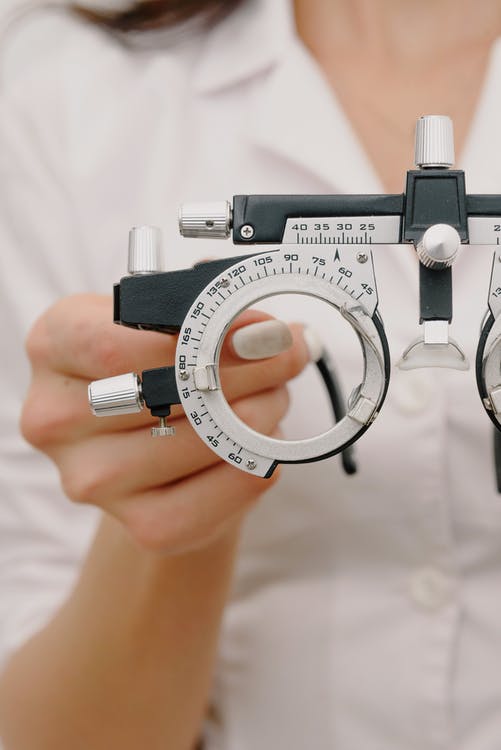Human eyes are vital sensory organs. Almost all human activities are dependent on the efficient functioning of the eyes. In recent years with the emergence of online business processes, there is a considerable increase in eye issues among millennials and Generation z. All of our current professional and social life activities rely on watching the screens of mobile phones and laptops. Therefore, eye care achieves a bit higher precedence. If you are in UAE, Dubai and looking for an eye consultation, a simple “eye doctor Dubai” search can help locate the nearest eye centers.
Most people visiting eye centers are aware of opticians. Opticians are concerned with eyeglasses and contact lenses. However, they are not eye doctors and cannot officially conduct eye examinations. Ophthalmologists and optometrists are the two main kinds of eye doctors. They have the responsibility and authority for eye examinations and eye surgeries.
Optometrists
Optometrists perform regular check-ups of your eyes, comprising primary care as well as advanced eye check-up. They perform eye examinations with different tools and techniques. You can plan yearly visits for your eye check-up with an optometrist. The eye check-up includes the following.
- Eye correction follow-ups
- Update the vision correction lenses
- Eye prescription
- Medication for eye issues.
Your eye treatment and observations are relative to your eye issues. Optometrists consider your complaints in the eye investigation, and general prescription comprises vision aides or eye drops.
Regular Check-ups
Optometrists provide vision care services that comprise necessary eye check-ups for general eye issues. Some common eye issues are eye strain and red eyes. These issues are associated with occupation, as more people spend exceedingly long hours in front of electronic device screens. Optometrists prescribe vision correction glasses or contact lenses if necessary after the eye examination.
Other Medical Conditions
Optometrists perform regular monitoring of eyes for people with ailments like diabetes. Diabetes patients require regular eye check-ups as high blood sugar levels can impact their eyes. Optometrists help in the management of eye Glaucoma. Glaucoma damages the optic nerve, and the condition only deteriorates over time. It is an age and family-related issue. Timely treatment is the only way to secure your long-term vision. Optometrists may suggest eye drops, oral medication, or laser surgery to manage your eye Glaucoma.
Optometrists do not perform major eye surgeries. However, they can perform minor surgical procedures like removing possible debris from the eye, several surgical interventions to give instant relief from pain, and laser eye surgeries.
Ophthalmologists
Ophthalmologists specialize in eye healthcare, including performing eye surgeries and vision care services. Vision care services are deeper eye examinations, effective management of internal and external eye issues that limit comfort and functioning, eye training, and eye surgeries. Ophthalmologists perform necessary optometry services that are a crucial and a regular part of eye issue management.
Checks and Diagnosis
Ophthalmologists conduct deeper checks to analyze the muscle reaction and functioning of your eyes. It is vital for maintaining a healthy vision. They check for possible symptoms of significant eye issues, like cataracts, and Glaucoma by observing the health of the retina and optic nerve of your eye. These checks are crucial for the early detection of eye issues. Early detection of eye issues and medication is necessary to maintain healthy long-term vision in conditions like Glaucoma. Delay in treatment can lead to vision loss.
Cataract and Glaucoma
Cataracts and Glaucoma are surgical eye issues. A cataract is essentially a protein build-up in your eyes that leads to blurry vision. There are different types of cataracts. Ophthalmologists perform cataract surgery to remove the damaged lens and replace it with a new one to renew your vision. It is one of the safest laser procedures and requires less than 30 mins to perform.
Surgical Treatments
The surgical requirement arises from injuries and damages to the eyes. If you have met with an accident, incidents involving chemicals and debris thrown into your eyes, and infections, you may require more intrusive eye care. An ophthalmologist performs surgeries to clean and fix your eye issues. The doctor follows up the surgical procedures with medications and eye drops. Ophthalmologists also suggest cryotherapy and chemotherapy. These therapies are dependent on the requirement to restore and maintain eye health.
Plastic Surgery
Along with restoring and maintaining your vision, an ophthalmologist may advise and perform plastic surgery as a post-treatment. It may include improving the eye posture by raising the eyelids in lazy eye issues. Plastic surgery is also necessary if your eyelid or skin on and around the eyes is wrinkled, leading to an undesirable appearance. Smoothing out the skin with corrective plastic surgery is a quick solution. Ophthalmologists treat other eye issues listed below.
- Lazy eye condition
- Dry eye
- Refractive errors leading to near-sightedness and farsightedness
- Retinal detachment

